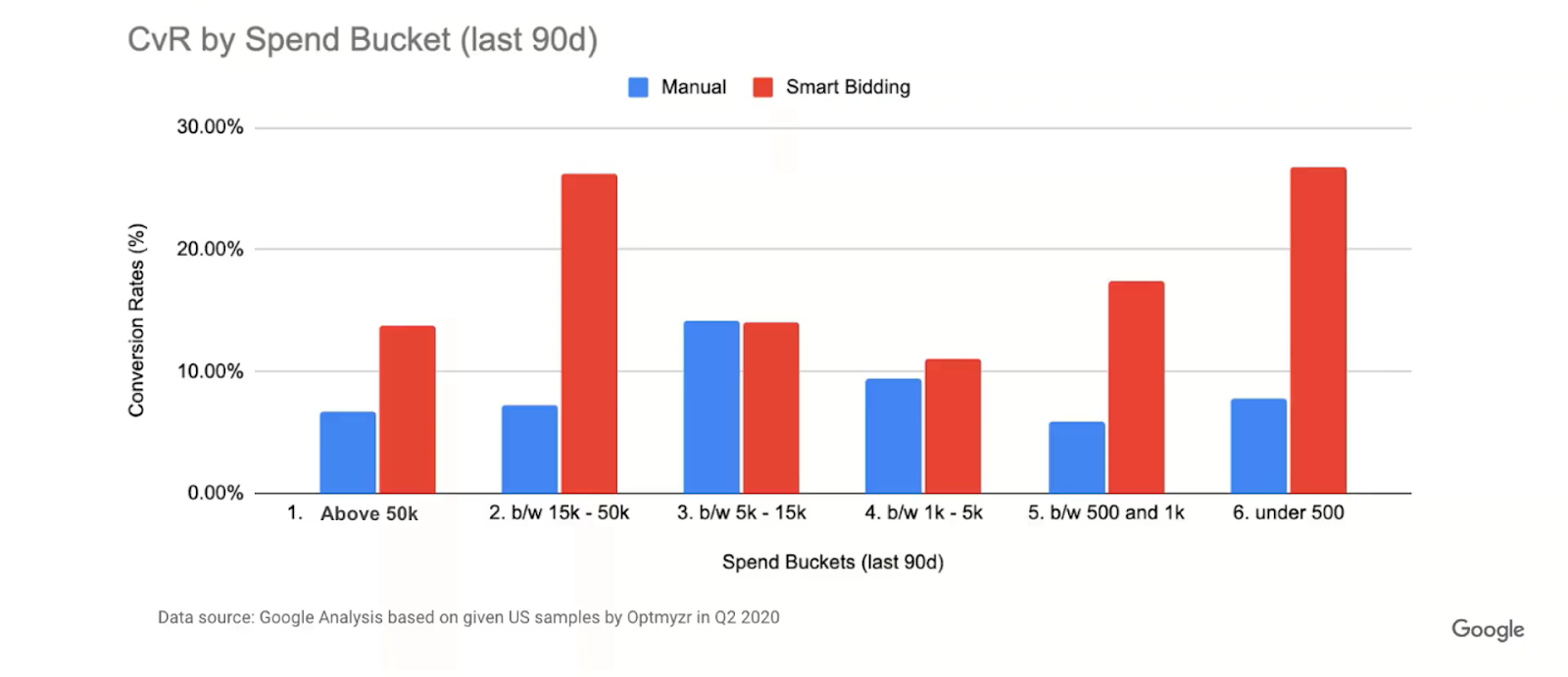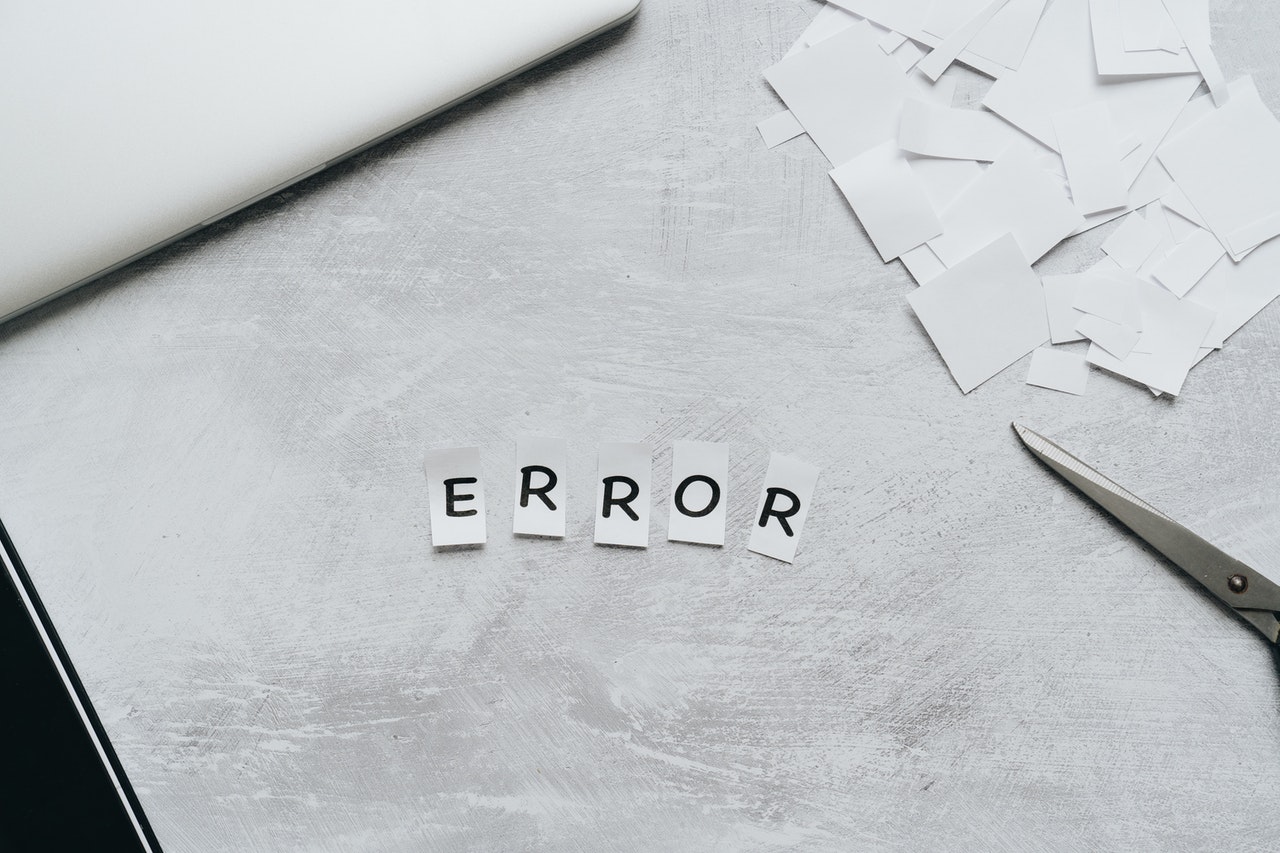Over the past few years, marketers have seen Smart Bidding evolve with Google’s machine learning. In fact, it seems to be a way into the future of advertising by making the best use of AI and data to provide intelligent campaign adjustments. But while Smart Bidding does automate tedious tasks of PPC ad management and save time, it’s far from a ‘set it & forget it’ mentality. To make the most of it, advertisers need to monitor and optimize to get the best results for their campaigns.
So this week on Episode 28 of PPC Town Hall, we invited our friends from Google to discuss Smart Bidding campaigns and shed light on tactics for optimization.
Our panelists for the week:
- Emi Wayner, Platform Partner Lead, Google
- Peter Oliveira, Partner Development Analyst, Google
You can receive the exclusive Smart Bidding guide from Optmyzr and Google by signing up here! You can also view previous editions of PPC Town Hall right here.
Without further delay, here are the 6 insights to understanding and optimizing Smart Bidding campaigns.
1. Evolution of Modern Search
Emi: What we see today is really the evolution of machine learning. I think machine learning is getting smarter with people getting more comfortable using and leveraging it to the next level for better results. We search so differently compared to what we did three years ago. In fact, 15% of queries on google.com are new every day. That means there are tonnes of queries that Google misses as well. So, we really have to depend on Machine learning to capture maximum potential with search.
As machine learning gets smarter, the data that marketers provide is really going to be the key to be competitive and achieve your goals. Not from the CPA perspective, but broader profitability and customer lifetime value.
2. Analyzing Smart Bidding signals
Peter: Google looks at billions of signals to set the bid for every auction. We’re monitoring a bunch of different things more than just the signals, like the intersection of these signals. A lot of the things that we used to optimize manually like devices, day of week, time, location, all the different keywords, etc are now being taken care of for Smart Bidding. But there are some tactics which you can use to inform Smart Bidding what are the right ways you can treat some of these things.
Emi: So this is a recent performance review using selected US accounts. When we looked at the data, Smart Bidding outperformed Manual Bidding across most of the spend buckets on Optmyzr accounts.

A lot of people should take advantage of Smart Bidding regardless of the budgets (look at the right-hand side of the chart – ‘under 500 budget’). And we see significant performance even in smaller budgets as well as larger ones (above 50k).
3. Optimizing Discovery campaigns
Peter: I have seen some very strong results with Discovery campaigns for certain advertisers. For example, I worked with a real-estate partner who was seeing better results in Discovery campaigns than in Search!
If you’re having issues with the returns and getting conversions, make sure that you’re setting the CPAs properly. Setting up unrealistic CPAs that do not represent your goals can hamper your account health. And then there’s also the flipside. If you look at our audiences to whom we are comfortable suggesting Discovery Ads, you’ll see that the daily budget recommended is about 20 times the target CPA. So, if you have a tighter budget, I’d recommend maybe doing 10 times the target CPA.
That being said, I have seen success at a lower CPA. But if you have a smaller budget, I wouldn’t be actively recommending Discovery Ads to you. Layering on audience lists like remarketing and customer matching might help you see more successful results.

Emi: We have seen a pretty good performance in the use cases with Discovery campaigns, even for a first-time mid-sized account. So I would encourage marketers to keep looking into why they aren’t giving you a good performance. In terms of how long, usually we test for a week and then we regroup with the customers, and keep doing this. So one week at a time.
4. Common mistakes advertisers make with Smart Bidding

Start making sure what goals your Smart Bidding campaign will be optimizing and those goals align with what you’re trying to achieve. I have seen people set a Max Conversions strategy on a campaign that was spending half of its budget. We didn’t see any positive results CPA-wise as Max Conversions doesn’t necessarily focus on optimizing your CPA. It looks towards getting you as many conversions as possible within your budget. And if you’re spending only half of your budget, we don’t necessarily know whether that incremental conversion will come at a CPA that aligns with your historical ones.
The other thing is the target that we set. I would advise looking into your optimization score recommendations in the front-end to see what we are recommending there. You’ll probably want to start by setting a target in line with what you’re historically performing at. If you’re historically performing at a CPA of $100 and if you switch that down to $50, you can massively end up throttling the number of conversions and sales you were getting.
Just because we don’t want to necessarily start with Smart Bidding on the exact Target CPA, doesn’t mean we can’t get there. Start with where you’re historically performing at and slowly adjust to get where you want to be.
5. Structuring a Smart Bidding campaign with segmentation
Peter: When we segment our campaigns, Smart Bidding can actually take data and learn from the performance that’s happening throughout the account. While you don’t need to segment everything, if you do end up breaking up your campaigns, Smart Bidding will be able to learn from the performance of the campaigns. The only thing that I’ll caution about is to break down to the point where there isn’t a lot of conversion volume in each individual campaign. On top of that, if you have a Target ROAS or Target CPA that your campaigns aren’t able to meet, that’s something to watch out for.
If you put more constraints on the targets and segment the campaigns, you could end up throttling your campaigns altogether.
6. Marketing as a holistic approach
Emi: We think that a marketer can play a bigger role in PPC marketing than just making strategies or directing CPC. We look at a marketer as a growth engine for the company. Strategic points like profitability and value of customers can help bring value to your work and your business. I would really encourage everyone to think more than just PPC, think of how you can bring that value to your company and leverage for more growth.
Conclusion
Fred: When you start with something, like Smart Bidding, it’s better not to shock the system and be extremely aspirational. Machine learning functions on how things have worked consistently in the past. Even if you set up higher targets, it might take a while for the system to get you there. But at the end of the day, to achieve the target you really want, it all comes down to you, the advertiser, to set up the prerequisites and feed in impressionable data. You can add a lot of value to your ongoing campaigns by not taking bidding as something that just happens by itself.
Seasoned PPC professionals make use of efficient bid management tools, like Optmyzr, to keep their accounts top-notch and optimize your bids. Try and experience our capabilities yourself by signing up for our 14-day free trial.










